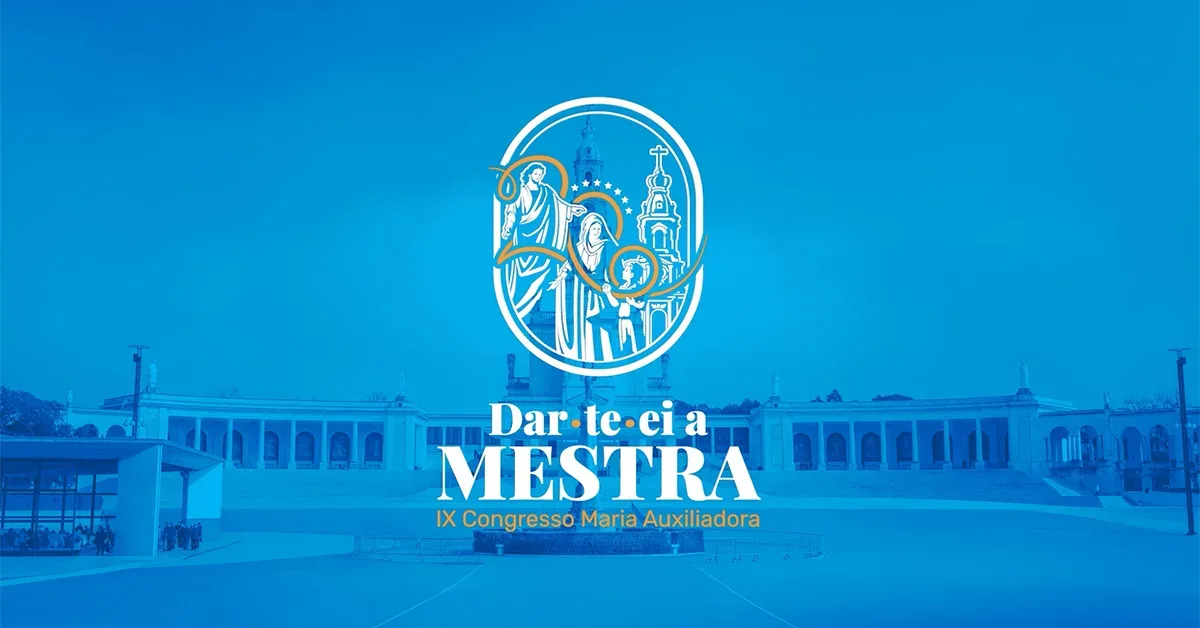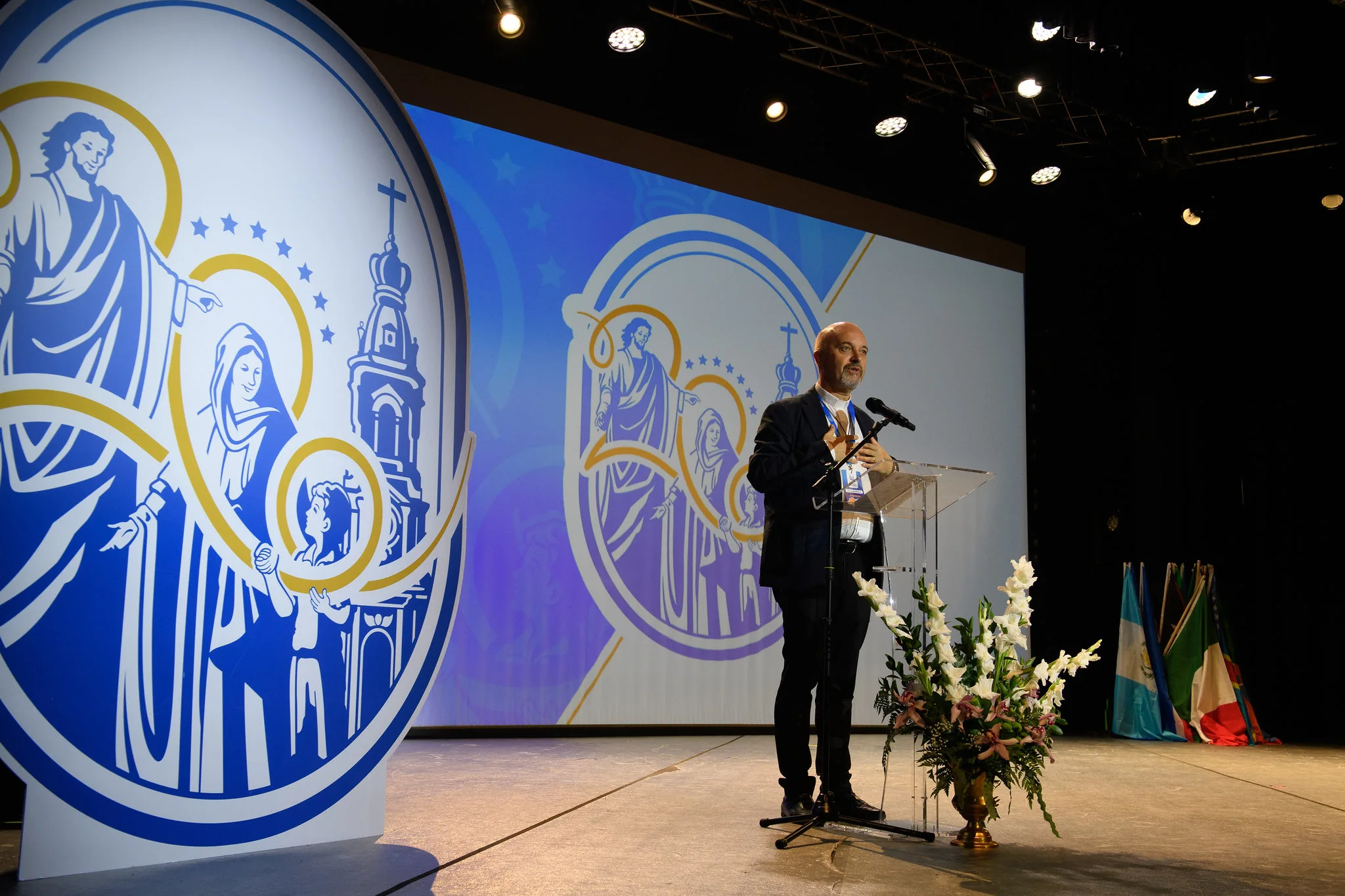1. Vocation and mission: the presence of mystery.
In the dream at 9, which lies at the origin of the entire Salesian mission, John experiences what the Bible attests to in all vocation stories, especially those of special consecration: a mixture of astonishment and disturbance because of the disproportion between human possibilities and what seems impossible to human person, between what is natural and what is supernatural, between the carnal human being and the spiritual human person, between the logic of calculation and that of gratuitousness, between human’s few resources and the superabundance of God’s gifts. The dialectic of possible and impossible is then experienced as a dialectic between clarity and obscurity, hence the whole theme of faith and the need for discernment: “do not put faith in every inspiration, but test the inspirations, to see whether they really come from God” (1 Jn 4:1), and “examine everything, hold fast to what is good” (1 Ts 5:21). Inevitable, because in the things of God, understanding is not the first step, if ever the last: the first is to recognise and obey God’s will. “In due time, you will understand everything”, little John is lovingly told.
The two dialectics manifest themselves whenever the mystery of God makes itself present to human consciousness. Since divine inspiration is greater than us and exceeds the possibilities of our reason, the double question immediately arises as to its source and content. Indeed, in the dream, John wants to know who it is that speaks to him and how it is possible what he is asked: “who are you that command me what is impossible?”. It is interesting to examine the answer of the two mysterious characters. But in the meantime, let us say it: no spiritual path takes off and matures if it does not expose itself to the mystery of God, if it does not allow itself to be bewildered by his supernatural character, if it remains reliant on its own natural gifts and limitations, if it places limits on providence, thus mortifying its own possibilities. On this point, the Lord has been clear. Twice, in Mathew’s Gospel, he repeats: “the one who has, shall be given, and he shall have an abundance; and from the one who has not, shall be taken away even what he has” (Mt. 13:12 and 25:29). It happens too often, however, that many spiritual impulses, as well as many conversions, remain deadened by considerations that are either too material or too emotional. This is why, Don Bosco would tell his young people: “you must give yourself to God in good time”, otherwise the heart would be filled with ‘ifs’ and ‘buts’ that compromise God’s dream! Put differently: it is all right to look ‘inside’, but it is never all right to look ‘on’: the recollection of prayer that recognises the voice of God is one thing, the narcissistic withdrawal into oneself is another.
Even John, despite all the supernatural signs, struggled to understand his own vocation and mission. In fact, in the dream at 9, John experiences an ever-increasing tension of soul, which denotes the difficulty in giving credence to the inspirations. The questions are pressing: “who are you … where, by what means? … who are you? … tell me your name”. As can be seen, the questions concern the mission and focus on the identity of the person and the feasibility of the mandate. The answers, however, do not erase the climate of mystery: they do not give information but demand a change in the way of thinking and acting.
The tension provoked by the request for change becomes inner resistance, and takes the form of a twofold objection: inadequacy (“poor and ignorant child, incapable of talking about religion”) and the difficulty in understanding (“I did not know what was meant”). The first objection is answered by indicating the means that make the impossible possible: obedience and science/wisdom: “precisely because such things seem impossible to you, you must make them possible by obedience and the acquisition of knowledge”.The second objection is answered with a postponement to the future, because what is not clear now, will be so in due time: “in due time, you will understand everything”. As we can see, the obedience of faith discloses the intelligence of faith, because faith is precisely the right way to know God, the right way to welcome God’s promises, the right way to live the commitment of the present in the light of future fulfilment. Of course, everything is paradoxical – paradox is the typical sign of mystery! – “since the answers in essence state that only by obeying the command will it become fully clear what it really requires” (A. Bozzolo).
2. The obedience of faith
Obedience – by which is meant filial obedience, that of Jesus, that of Mary, that of the Saints, that which is belonging and recognising, trust and confidence, loyalty and collaboration – is the right thing, because when it comes to vocation and mission, it is not a question of understanding and knowing, but of living an intimate and fruitful relationship with God, where one’s own will is united with God’s will, and where one’s intelligence is illuminated by God’s wisdom. Then, the miracle happens. God’s power can be expressed in our weakness, and our works in Him are none other than His works in us! It is the ideal of the life of grace: “you in me and I in you”, so that there may be love and joy, efficacy of prayer and fruitfulness of works (cf. Jn 14:20; 15:4; 15:5; 17:21-22).
The obedience of faith makes the impossible, possible: to move the mountains of pride, to heal from all kinds of illnesses, to obtain salvation and eternal life. This is what the Lord says: “If you had faith as much as a mustard seed, you could say to this mulberry tree: “be uprooted and planted in the sea, and it would listen to you” (Lk 17:6)! Obeying is always the right thing to do, because truly – as John experiences in the dream, and with him every one who is called – the mission totally exceeds our strength, but it is made possible by the fact that it does not rely on our abilities, which must be totally brought into play, but on the power of the Risen Lord and His Spirit.
The testimony of the great characters in the Bible is in complete agreement (cf. Heb 11:1-40). It is ‘Impossible’ for Abraham to have a son by a barren and old woman like Sarah; It is ‘Impossible’ for the Virgin to conceive and give birth to the world the Son of God made man; Disciples think, salvation is ‘impossible’, if it is easier for a camel to pass through the eye of a needle than for a rich man to enter the kingdom of heaven.” Yet Abraham answers: “is anything impossible for the Lord?” (Gen 18:14); the angel tells Mary that “nothing is impossible to God” (Lk 1:37); and Jesus replies to the unbelieving disciples that “what is impossible to men is possible to God” (Lk 18:27). Even the supreme place of Redemption is marked by the impossible: for how is it possible to conquer death? This, then, is what the obedience of faith is: allowing Jesus to turn our views of what is possible upside down, because God, by raising his Son made man in the power of the Spirit, has broken through the limit of our human possibilities and opened them up to his divine possibilities! Of this every believer should be firmly convinced: having opened from within the frame of our limitation and our transience, the Lord’s Incarnation and Resurrection are the most real things that exist, the things we can always count on without reservation.
It is interesting to note that obedience is so much the right thing. On closer look, it is the most basic thing that children are taught. It is the fundamental attitude of Jesus towards the Father. The venerable man in the dream addresses John as one would address a child: “because such things seem impossible to you, you must make them possible by obedience”. They sound like the words with which parents exhort children when they are reluctant to do something they do not feel capable of or do not feel like doing: “obey and you will see that you succeed.” But they are also, and much more, the words with which the Son reveals the secret of the impossible, his obedience: “my food is to do the will of him who sent me and to do his work” (Jn 4:34), and “He who sent me is with me and has not left me alone, because I always do the things that are pleasing to him” (Jn 8:29).
The most basic reason why obeying is important is that God can carry out his dream on us only if he can get us to change our mindset and attitudes. When faced with adversities and setbacks, we usually react instinctively, impulsively, immaturely, even immorally. It is too easy to go ‘hand in hand’ with unjust things, perhaps feeling righteous. However, Moses (Ex 2:11-15) and Jeremiah (Jer 1:4-9) accepted to go beyond their feeling of being too young. Peter definitively overcame the sin and shame of betrayal (Jn 21:15) and again and again ‘cast his nets’ on the word of Jesus (Lk 5:5); and Paul, who had been a “persecutor and a violent man” (1Tim 1:13), learnt to “make himself all things to all men, to save someone at any cost” (1Cor 9:22). So, John Bosco too, strong and impulsive as he was, had to obey to learn to repress evil not with violence but with benevolence: “not with beatings, but with meekness”. The fruit of obedience is an authentic inner transformation, which leads us to overcome the pretence of changing things with the generosity of our spontaneous impulses or with the strength of our natural gifts, in order to enter into the style with which God acts in history and in our hearts.
It is therefore important to point out a risk that is always present in the obedience of faith: that of continuing to rely on one’s own strengths or despairing of one’s limitations. It is a risk that John, significantly, does not take! John was humanly gifted from all points of view: extraordinary physical vigour, excellent memory, the makings of a leader and a contagious gaze. Yet he himself recognised that the mission was a call to the impossible. Fr. Bozzolo explains well: “It is not on the level of natural aptitudes that the demand for the impossible is played out here… Beyond this frontier, the region of the impossible opens up, which is, however, biblically, the space for God to act.”
3. The intelligence of faith
We were saying: obedience sharpens intelligence. It is guaranteed, because it comes from above and compensates the inadequacy/impossibility of the one called with an offer of present and future light that makes the shares of obscurity sustainable. But, precisely, this guarantee is ensured by obedience: the mission, however arduous and obscure it may appear, must be carried out in order to be understood. This is the character of injunction that every vocation carries with it.
It is not surprising, then, that in the dream, the dialectic of possible and impossible is intertwined with that of clarity and obscurity. In the dream, in fact, the confusion of John’s soul contrasts with the luminous face of the Lord; the face so luminous that John is unable to sustain his gaze. It is a dialectic, typical of the great callings, particularly present in the lives of mystics, and it is the experience of a tenebrous light and a luminous darkness: it says that however great the knowledge of God, His mystery is even deeper. The basis of this paradoxical experience lies in the two faces of the Paschal Mystery, which is always cross and joy, the raising of Jesus to the Cross and the raising of Jesus to Glory. In the fourth Gospel, John uses only one word for both elevations: “when I am lifted up from the earth, I will draw everyone to myself” (John 12: 35).
It is still interesting to note that in the dream, in addition to the luminous face of the Lord, John receives the gift of luminous words: both the man and the woman clearly explain what John has to do, and yet leave him confused and frightened. There is also a very clear image, the transformation of wolves into lambs, which however leads to even greater incomprehension. There is, therefore, no explanation that holds, no knowledge that can anticipate obedience: one cannot secure life before living or without living, because at stake is God’s immensity, his greater justice, his infinite love. It is precisely through the obedience of faith that the meaning of an entire life is clarified.
Indeed, this dialectic of light and darkness, and the practical form of its clarification, characterise the theological structure of the act of faith. To believe, in fact, is to walk in a luminous cloud, which shows man the path to take but deprives him of the possibility of mastering it with his gaze. If Abraham is called ‘our father in faith’, it is because to walk in faith is to do as Abraham did who ‘set out without knowing where he was going’; certainly not in the sense of moving haphazardly, but in the sense of moving under God’s blessing ‘to a place he was to receive as an inheritance’ (Heb 11:8). In faith, it is like this: the promised land cannot be known in advance, because the willingness to walk contributes to its existence. Mary’s words to John – “in due time you will understand everything” – are therefore not just benevolent maternal encouragement, but truly contain the maximum amount of light that can be offered to those who must walk in faith (A. Bozzolo).
In the light of the dream, we can ask ourselves:
- What is the level of my faith? Do I know that nothing is impossible for God? That he who believes, sees? That a grain of genuine faith is enough to see miracles? That Mary is Mother and Teacher in the faith? That obeying is better than doing one’s own way? In what is life asking me to trust, to rely on? In what does God have to win in me, in what to break down resistance, in what to untie knots?
- Do I accept the nature of faith leaning on God’s wisdom and power? Do I know that ‘though I walk through the valley of darkness, I need fear no evil, for he is with me’? Do I unceasingly ask for patience and hope in times of trials, so as not to give in to pessimism and discouragement?







